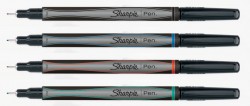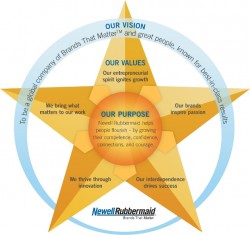 Newell Rubbermaid is wrapping up a move of its Europe-Middle East-Africa headquarters from France, Belgium, and Germany to Geneva, a consolidation that talent acquisition director Carlos Vazquez says involved a “gargantuan task of staffing over 80 roles during the last six months.”
Newell Rubbermaid is wrapping up a move of its Europe-Middle East-Africa headquarters from France, Belgium, and Germany to Geneva, a consolidation that talent acquisition director Carlos Vazquez says involved a “gargantuan task of staffing over 80 roles during the last six months.”
Vazquez manages recruiting in EMEA and in Latin America, working out of Weston, Florida, not far from both the ocean and the Everglades. Most of Vazquez’s work — about 70% — is on EMEA (and he might live in Europe if he was single and didn’t have three kids in the States) and about 30% of his work is on Latin America. He has been with the company for four years, coming from Lucent.
CEO Mark Ketchum — who is retiring in a few months — made the announcement of the European headquarters move in the second quarter of last year. Newell Rubbermaid wanted a geographically central place with a good business climate and a high quality of life.
Back in 2010, Vazquez had a team made up of only one person, and himself. He says Newell Rubbermaid “bent over backwards” to retain people and offer them enticements to move, many from Paris but others, as mentioned, from elsewhere in Europe.
Even though it’s an hour flight from Paris to Geneva, a three-hour train ride, and the language is the same, it is two different countries, and roughly 75-80 people, or about 50%, did not make the move for one reason or another.
So Vazquez’s team needed to hire everyone from individual contributors to director and VP-level roles, spanning marketing, finance, supply chain, and sales jobs. And, of course, recruiters: he now has four talent acquisition managers reporting to him and working on Europe, and two researchers (“all you see is the back of her neck,” he says of one).

Employees had to start work in Geneva before the new offices were done. “Living like nomads,” Vazquez says, while they found housing, which wasn’t easy.
To find the roughly 80 new hires, the Vazquez team used a little of everything. That included LinkedIn, Xing, Twitter, Facebook, and The Network. The latter is a way of posting jobs to the top job boards in multiple countries. “Basically we left no stone unturned to let people know we were we’re hiring,” he says.
He was looking for people who like fast-paced work, and — beware of one of recruiting’s most-common buzzwords approaching — people who are passionate about their work. He also wanted people who could “get their fingernails dirty,” perhaps literally, given the new headquarters being a work in progress, people adaptable to change, and who thrive under tight deadlines.
One challenge is that the company’s brand, like Reckitt, is less known than its products. Sure, people know Rubbermaid, but it wasn’t until 1999, about a hundred years after the company started, that Newell even acquired that part of the brand. Much of what the company does — take Goody, for instance — involves products people know but don’t know who makes them. Another is Graco, known by most parents and benefitting from new car-seat laws in Brazil.
In addition to all the branding challenges, there was red tape to deal with when it comes to all this hiring in Europe. “We like to move at certain speed,” he says, “and sometimes you have to sit back and wait for things to happen.”

One of Vazquez’s recruiting hires is well-versed in social media. She’s working on improving the company’s relationships with colleges in EMEA. She’s also working with the corporate staff, which likes a certain amount of consistency, as she improves the company’s Facebook and other pages. “Are we where we want to be with regards to social media right now?” Vazquez asks, rhetorically, answering: “Probably not.”
Anyhow, this successful move is now mainly in what Vazquez calls the “rearview mirror.” The hires are pretty much complete, and the new headquarters has opened, though Vazquez tells me the Swiss government still has to fully approve/establish the company. It went better than expected, he says, but was “a learning experience. It’s not as easy as doing business in the U.S. where everything is more cookie cutter, if you will. Every country is a totally different world.”